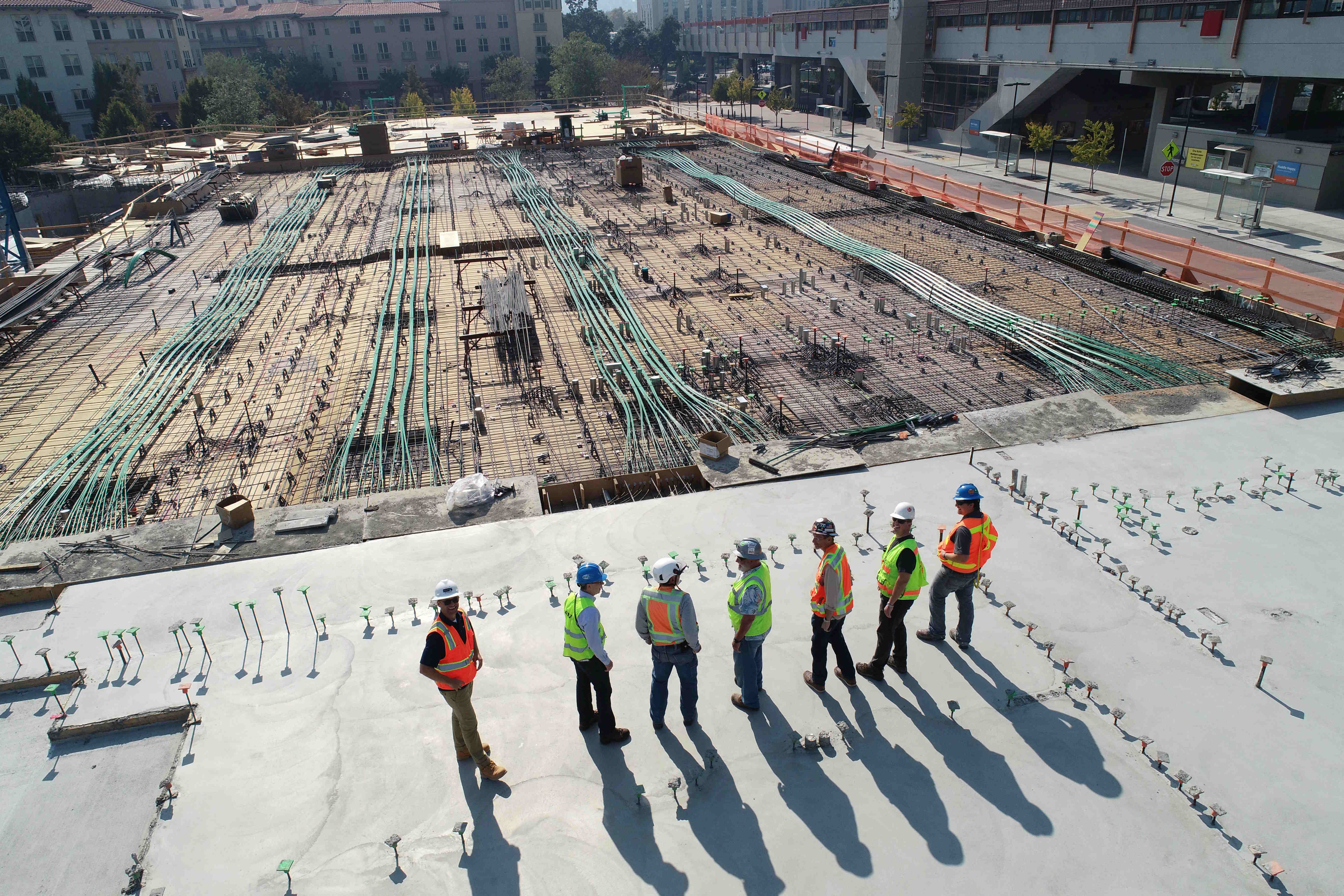The construction industry is undergoing a profound transformation driven by rapid advancements in technology. With innovative tools and methodologies redefining traditional practices, projects are becoming more efficient, sustainable, and safer.
Whether it’s optimizing workflows or enhancing on-site safety, technology has cemented its place as a cornerstone of modern construction. This article delves into the most significant ways technology is shaping the future of construction projects.


The introduction of sophisticated software solutions has revolutionized how construction professionals plan and execute their projects. These tools facilitate seamless communication, precise budgeting, and efficient resource allocation. For instance, platforms designed to optimize project estimates and financial planning are becoming indispensable in the industry.
Contractor estimating software by Hearth offers unparalleled accuracy in cost prediction and project management, enabling contractors to deliver high-quality results while adhering to budgets and timelines. By leveraging such tools, companies can reduce errors, enhance transparency, and foster collaboration among stakeholders.
Additionally, project management software allows real-time updates and data sharing, ensuring that all team members are aligned. This reduces delays and improves decision-making across all phases of construction, from design to completion. As the demand for streamlined operations grows, software solutions will continue to evolve, catering to the dynamic needs of the construction industry.
Safety remains a critical concern in construction, and technology has stepped in to mitigate risks effectively. Wearable devices, such as smart helmets, vests, and gloves, are designed to monitor workers’ health and alert them to potential hazards. These devices often include features like real-time location tracking, fatigue monitoring, and environmental sensors that detect dangerous levels of gases or excessive noise.
For instance, smart helmets equipped with augmented reality (AR) can display critical project data, such as structural blueprints or safety guidelines, directly within the worker’s field of vision. This reduces the need for paper-based plans and enhances on-site efficiency. Similarly, wearable sensors can detect irregularities in workers’ movements, helping prevent injuries caused by repetitive strain or improper lifting techniques.
Drones have become indispensable tools in the construction industry, offering unparalleled capabilities for site monitoring and surveying.
One of the key benefits of drone technology is its ability to perform inspections in hard-to-reach or hazardous areas, minimizing risks for workers. For example, drones can assess the structural integrity of bridges, towers, or high-rise buildings without requiring scaffolding or ladders. Additionally, they enable real-time progress tracking, allowing project managers to identify delays or inefficiencies and address them promptly.
Building Information Modeling (BIM) has emerged as a game-changer in construction, offering a digital representation of a building’s physical and functional characteristics. By integrating data from various disciplines into a single model, BIM facilitates improved collaboration, visualization, and decision-making throughout the project lifecycle. For industries that rely on complex piping systems, integrating BIM with pipe fabrication software enhances accuracy in design, reduces material waste, and ensures seamless coordination between engineering and fabrication teams.
One of the most significant advantages of BIM is its ability to detect potential design conflicts before construction begins. For instance, architects and engineers can identify clashes between structural and mechanical elements, such as plumbing and electrical systems, and resolve them during the design phase. This reduces costly rework and ensures that projects progress smoothly.
Furthermore, BIM enables seamless updates to project designs, allowing stakeholders to stay aligned with real-time changes and adapt strategies quickly when needed. BIM also empowers teams to run simulations, such as assessing safety measures or material requirements, fostering more informed planning and resource management.
Sustainability is a growing priority in the construction industry, and technology is playing a pivotal role in achieving this goal. Green construction technologies, such as energy-efficient building materials and renewable energy systems, are transforming how projects are planned and executed.
For example, smart building systems equipped with IoT sensors can monitor and optimize energy usage, reducing operational costs and environmental impact. These systems automatically adjust lighting, heating, and cooling based on occupancy and weather conditions, ensuring maximum efficiency. Additionally, advancements in water recycling systems and green roofing solutions are further enhancing the environmental sustainability of modern construction projects.
AI in construction is making significant inroads into construction management, offering powerful tools for data analysis, risk assessment, and resource optimization. By processing vast amounts of data, AI algorithms can predict project outcomes, identify potential delays, and recommend corrective actions, enabling managers to make informed decisions.
Predictive maintenance, powered by AI, leverages machine learning models to analyze equipment data, anticipate potential failures, and schedule repairs proactively. This approach minimizes downtime and optimizes machinery performance.
Additionally, AI-powered chatbots and virtual assistants are being used to streamline communication, answer queries, and provide real-time updates to stakeholders.
Technology is reshaping the construction industry in ways that were once unimaginable. From advanced software solutions to cutting-edge tools like drones and AI, these innovations are enhancing efficiency, safety, and sustainability across all aspects of construction projects. By embracing these technologies, professionals can overcome traditional challenges and drive the industry toward a brighter future.
While other cities like San Francisco, Austin, Seattle, and New York have made impressive strides…
Find out the major factors that influence pricing for both Magento Open Source and Magento…
For projects requiring comprehensive visual implementation across diverse contexts, Icons8 provides significant value despite these…
Discover how My Mini Factory is transforming automotive design with 3D printing. From custom parts…
Kansas City entrepreneurs partnering with ThrottleNet gain more than just technical support—they receive a strategic…
California is making strides in solar panel recycling, a vital part of its wider environmental…